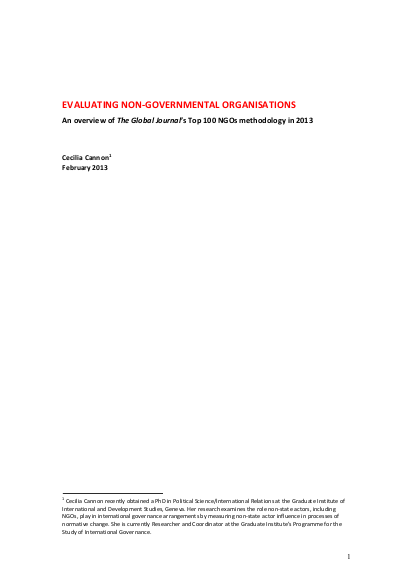
In the not so distant past, non-governmental organisations (NGOs) enjoyed a widespread positive reputation – in the public eye, in the media and within the scholarly community that sought to better understand and conceptualise these actors. With an historical legacy of impassioned activists ameliorating the status quo across a range of issues – from ending the slave trade to fighting for women’s rights, removing environmentally harmful CFC emissions from household appliances and prohibiting the use of landmines in conflict zones – it seemed, until the late 1990s, that NGOs could do no wrong. In the past decade, however, public discourse on NGOs has shifted, and scholars have begun to critically assess and scrutinise their organisational structures, credibility, legitimacy, accountability, impact and more.
As funds and responsibilities are transferred to NGOs, so too, it seems, is the blame that states and international organisations traditionally faced for their inability to adequately ‘fix’ the world’s problems. And yet, while public discourse and scholarly works trend towards spotlighting negative NGO practice, little is being said about good NGO practice, or what good practice should even look like. As Gourevitch et al state, “most NGOs are, indeed, virtuous. They pursue laudable goals, attract dedicated individuals who labour hard for little remuneration, and – in general – do good work.”
This is the context in which The Global Journal first produced its ‘Top 100 NGOs’ ranking in January 2012, and in which it presented the second edition in January 2013. As will be discussed in the pages that follow, the task of evaluating the vast diversity of NGOs is enormous and riddled with challenges. Yet, as scholars of development studies, political science and public administration all agree – as well as members of the donor and practitioner communities – the benefits of evaluating NGO effectiveness far outweigh the challenges associated with the task. If the right methodological measures are put in place, challenges can be minimised and methods of evaluation and analysis will continue to improve and evolve over time. This paper presents an overview of the current state of research evaluating NGOs, before outlining the methodology developed and adopted by The Global Journal for its 2013 Top 100 NGOs list.